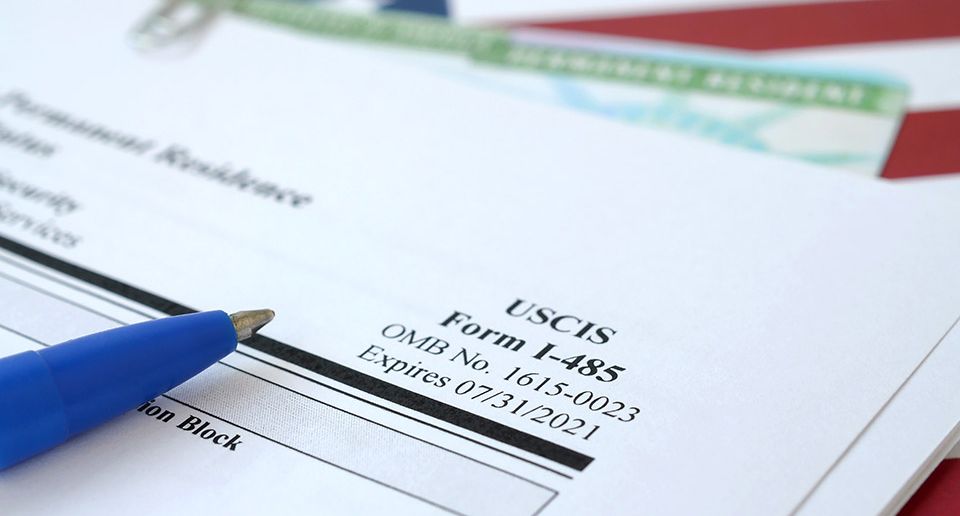I am undocumented, do I qualify for public benefits?
Alexandra Fuxa Ramirez • November 11, 2022
The answer to this is: it depends! Eligibility criteria for public benefits varies among states. It is always important to check what the state you live in requires for someone to receive public benefits.
In the state of California, you might be eligible for public benefits depending on your immigration status. Public benefits may help you cover basic expenses like food, housing, and healthcare.
- What public benefits am I eligible for in California?
Immigrants who are California residents may qualify for in-state tuition at the University of California, California State Universities, and California Community Colleges if they have certain types of immigration status. Undocumented students may still qualify for in-state tuition in accordance with California Assembly Bill 540. University and College websites often have information and resources specifically for undocumented students. The campus admissions office may also be able to answer any additional questions you may have.
In California, emergency MediCal (California’s Medicaid program) is available to all individuals, regardless of immigration status. If you are undocumented and pregnant or just had a baby, you may be eligible for prenatal MediCal coverage and pregnancy-related coverage for up to one year.
Undocumented children and individuals who are 50 years or older may qualify for full-scope MediCal.
If you have applied for a U Visa, you may be eligible for full-scope MediCal, Cash Assistance (CalWORKs, GR, CAPI), and State Food Assistance Program (CalFresh).
If you have applied for a T Visa, you may be eligible for full-scope MediCal, Cash Assistance (CalWORKs, GR, CAPI), State Food Assistance Program (CalFresh), Federal Refugee Benefits, and Federal Financial Aid.
If you have applied for VAWA, you may be eligible for full-scope MediCal, Cash Assistance (CalWORKs, GR, CAPI), State Food Assistance Program (CalFresh), and Federal Financial Aid.
- Will receiving public benefits prevent me from getting a green card in the future?
Many people fear applying for public benefits because they do not want to be considered a public charge. “Public Charge” is a test to determine if someone applying for a green card or a visa to enter the United States is likely to depend on certain public benefits in the future. If someone is likely to be a public charge, their green card or visa application will be denied.
Public charge affects people who are applying for permanent residence through a U.S. citizen or permanent resident relative petition, or who are applying for a visa to enter the United States. Other immigration cases, like asylum, naturalization, or cancellation of removal in court are not affected by the public charge rule. Additionally, survivors of domestic violence, trafficking, and other serious crimes can receive public benefits without it harming their immigration status. However, it is extremely important to always tell the truth when applying for public benefits to avoid immigration or other related problems.
- Will receiving MediCal cause me to have problems with getting a green card in the future?
No – MediCal, CalFresh, housing programs, WIC, emergency and disaster relief, Head Start, and free and reduced-cost school meals are NOT part of the public charge test. This means receiving any of these benefits will not cause problems getting a green card in the future. Remember to always tell the truth when applying for public benefits to avoid immigration or other related problems.
- What about receiving COVID-19 related benefits? Will those cause issues with my green card application?
Not at all! Stimulus checks and tax credits are also not a part of the public charge test. COVID-19 public benefits relating to food, housing, cash assistance, rental assistance, tax credits, stimulus payments, unemployment, financial aid grants to students, Paycheck Protection Program, and student loan forbearance will NOT be considered for the public charge test. The government has stated that it will not consider COVID-19 testing, treatment, or preventive care, including vaccinations, as part of the public charge test. In fact, the government encourages everyone, regardless of immigration status, to receive the COVID-19 vaccine.
Please remember immigration laws and policies are constantly changing, so it is best to talk to an attorney if you have any questions before applying for public benefits.
This blog is not intended to be legal advice and nothing here should be construed as establishing an attorney client relationship. Please schedule a consultation with an immigration attorney before acting on any information read here.
This Facebook widget is no longer supported.
Similar Posts

The answer to this question changed considerably after President Biden rolled back some of former President Trump’s harsh immigration policies. In 2019, Trump had issued an executive order known as “The Public Charge Final Rule,” which caused the receipt of most public assistance programs to negatively impact AOS applications, and with few exceptions (e.g. emergency services and Medicaid recipients who were pregnant or under the age of 21).

U.S. Citizenship and Immigration Services (USCIS) has announced a major change to the H-1B cap selection process. Under a final rule issued on December 29, 2025, USCIS will replace the long-standing random H-1B lottery with a wage-weighted selection system that favors higher-paid and more complex positions. The rule is scheduled to take effect on February 27, 2026 , just ahead of the fiscal year 2027 H-1B cap registration season, unless delayed by legal challenges. If implemented, USCIS is expected to release additional guidance explaining how employers must submit registrations under the revised process. This change marks one of the most significant reforms to the H-1B program in recent years. Up until 2025, all registrations were treated equally once the annual cap was reached. Under the new system, selection odds will be tied to wage levels based on the U.S. Department of Labor’s Occupational Employment and Wage Statistics data. All H-1B registrations will still be placed into a single selection pool, but registrations tied to higher wage levels will receive multiple entries into that pool, increasing their likelihood of selection. Lower wage levels will receive fewer entries, making selection less likely but not impossible. H-1B wage levels are not determined solely by salary. Each wage level reflects the complexity of the job, the level of responsibility involved, and the education and experience required . Entry-level positions involving routine duties and close supervision are generally classified at the lowest wage level, while positions requiring independent judgment, advanced skills, and significant responsibility fall into higher wage levels. The highest wage level is reserved for roles that involve expert knowledge, strategic decision-making, and substantial leadership or technical authority. USCIS is expected to closely scrutinize selected petitions to ensure that the wage level claimed during registration is supported by the job duties and salary offered in the petition. Any discrepancies between the registration and the petition may result in requests for evidence, denials, or enforcement action. With the elimination of the purely random lottery, employers should begin preparing early by carefully evaluating job descriptions, wage levels, and overall H-1B strategy. Accurate classification and thoughtful planning will be essential under this new wage-based selection system. If you are an employer considering H-1B sponsorship, or a foreign professional wondering whether your position may qualify under the new wage-based system, consulting with experienced immigration counsel is more important than ever. Santos Lloyd Law is actively advising clients on H-1B cap registrations and strategy under the new rules. To discuss your options or determine whether you may qualify, contact our office to schedule a consultation.

During the recent administration there has been an increase in issuance of Requests for Evidence for EB-1A petitions for those of Extraordinary Ability. A Request for Evidence is a request that is made by USCIS that should explain how the evidence is deficient in proving the criteria argued and what additional evidence needs to be provided by the applicant to meet the criteria. EB-1A petitions are already normally subject to higher scrutiny because their approval is the first step needed to apply for Lawful Permanent Residence or a green card. USCIS normally requires not just evidence but that the evidence be provided with context and information to show why it matters in a particular field. For example, if you were providing evidence of your membership in an organization that requires outstanding achievements of its members, just providing evidence of the membership is not enough. You must explain what that membership is and provide background information on the organization granting the membership. You also need to provide evidence on the criteria that is used to select the members, information on those who select the members to show that they are recognized experts, other documentation such as articles about the membership organization to show its importance, and any other relevant evidence and background information to show that the criteria is met. A request for evidence being issued prior to the current administration was not uncommon, but in the current climate it is more surprising to not receive a request for evidence for this type of case. It is important to remember that a request for evidence is not a denial. Depending on the validity of the information in the request and the substance some Requests for Evidence can be overcome, and the case be approved. It is important to carefully review the request and note if there are any errors in the content and application of the regulations by USCIS. If you have an attorney, you should work with them and make sure that you provide any evidence you think may be helpful. Although there is a deadline by which a response must be submitted, attention to detail and patience will go a long way when dealing with having to respond to a request for evidence. If you believe you may qualify for this type of visa, please feel free to contact our office.




